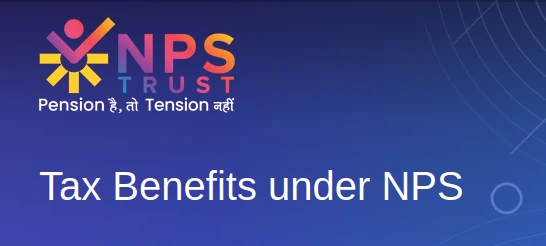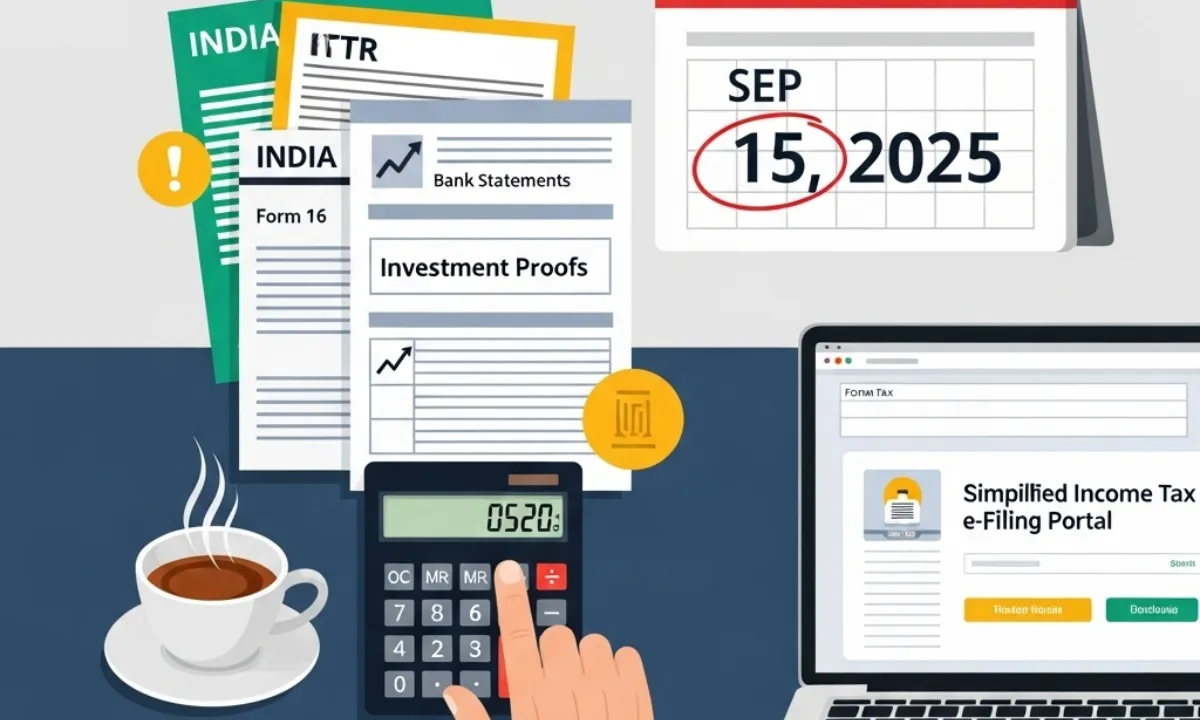NPS Comes Under Which Section: The National Pension System (NPS) falls under Section 80CCD of the Income Tax Act, 1961. This section outlines the tax benefits associated with contributions made to the NPS. It allows individuals and employers to claim deductions on contributions towards the scheme.
NPS: A Comprehensive Overview
The National Pension System (NPS) is a government-sponsored, voluntary retirement savings scheme in India. It aims to provide individuals with a regular income after retirement. NPS is a long-term investment option that helps you build a retirement corpus and secure your future.
The Purpose of NPS
The primary purpose of NPS is to encourage individuals to save for their retirement. By investing in NPS, you build a financial cushion that will help you maintain a comfortable lifestyle after you stop working. NPS offers tax benefits and a secure investment option that can help you achieve your retirement goals.
Understanding NPS Tiers
NPS has two tiers:
- Tier I: This is the core account of NPS, primarily focused on retirement planning.
- Tier II: This is a voluntary account that allows for additional investment and withdrawals for other financial needs. It doesn’t offer the same tax benefits as Tier I.
Try This: NPS Vatsalya Calculator
Benefits of Investing in NPS
There are numerous advantages to investing in NPS, making it a popular choice for retirement planning:
- Tax benefits: You can claim tax deductions on your contributions to NPS under Section 80CCD (NPS Comes Under Which Section)of the Income Tax Act, 1961.
- Investment options: NPS offers a wide range of investment options, including equity, government bonds, and corporate bonds.
- Flexibility: You have the flexibility to choose your investment portfolio based on your risk appetite.
- Transparency: NPS investments are managed by Pension Fund Regulatory and Development Authority (PFRDA), which ensures transparency and accountability.
- Low costs: NPS is a cost-effective investment option compared to other retirement savings schemes.
Tax Benefits of NPS

Tax Benefits for Employees
If you’re an employee, you can avail the following tax benefits on your contributions (NPS Comes Under Which Section) to NPS:
- Deduction up to 10% of salary (Basic + DA) under section 80 CCD(1) within the overall ceiling of Rs. 1.50 lakh under Sec 80 CCE.
- Deduction up to ₹50,000 under section 80 CCD(1B) over and above the overall ceiling of Rs. 1.50 lakh under Sec 80 CCE.
Read More: How to Get a Monthly Pension of Rs 1 Lakh NPS
Tax Benefits for Self-Employed Individuals
If you are self-employed, you can enjoy the following tax benefits on your (NPS Comes Under Which Section) NPS contributions:
- Deduction up to 20 % of gross income under section 80 CCD (1) within the overall ceiling of Rs. 1.50 lakh under Sec 80 CCE.
- Deduction up to ₹50,000 under section 80 CCD(1B) over and above the overall ceiling of Rs. 1.50 lakh under Sec 80 CCE.
Tax Benefits on Employer’s Contribution
Your employer can also contribute towards your NPS (NPS Comes Under Which Section). This contribution attracts tax benefits as well:
- Deduction up to 10% of salary (Basic + DA) (14% if such contribution is made by Central Government) contributed by the employer under Section 80 CCD(2) over the limit of Rs. 1.50 lakh provided under section 80 CCE.
Budget 2024 Changes to NPS
Enhanced Deductions for Employer Contributions
One of the significant changes introduced in Budget 2024 is an increase in the deduction for employer contributions to pension schemes under Section 80CCD(2) (NPS Comes Under Which Section). This deduction has been raised to 14% of salary (Basic + DA) for all employers except the central government. Previously, the deduction was capped at 10%.
Read More: Best Investment Options for Financial Independence 2024: Top 5 Choices
Impact of Budget Changes on Your NPS Strategy
This change can be particularly beneficial for employees whose employers match or contribute to their NPS accounts. The increased deduction allows for greater tax savings and can potentially boost your retirement corpus. If your employer contributes to your NPS account (NPS Comes Under Which Section), make sure you understand the implications of these changes and discuss them with your employer.
How NPS Helps You Save for Your Child’s Education
How NPS Works as a Long-Term Investment Strategy
Though NPS is primarily intended for retirement planning, you can use it strategically to build a fund for your child’s education as well. By investing in NPS early on, you leverage the power of compounding and build a substantial corpus over time.
The Power of Compounding in NPS
Compounding is the magic of earning returns on your earnings. When you invest in NPS, your returns are reinvested, earning further returns. This exponential growth allows you to build a large sum over the long term. For example, if you start investing Rs 1,000 per month in NPS from the time your child is born, assuming a modest 10% annual return, your investment can grow to over Rs 50 lakhs by the time your child reaches 18 years old!
Try This: SSY CALCULATOR
The Impact of NPS on Your Financial Planning
How NPS Contributes to a Holistic Financial Plan
NPS is an integral part of a well-structured financial plan. It acts as a long-term investment vehicle that helps you address two key financial goals:
- Retirement planning: Ensuring you have a steady income stream after you stop working.
- Education savings: Building a fund for your child’s education.
Combining NPS with Other Investment Options
While NPS is a valuable investment, it shouldn’t be the only instrument in your financial arsenal. You can combine NPS with other investment options like Mutual Funds, Fixed Deposits, or even real estate. This diversification helps you manage risk and potentially achieve better returns.
Tips for Maximizing NPS Benefits
Choosing the Right NPS Scheme for Your Needs
NPS offers different investment options that cater to different risk profiles. It’s crucial to understand your financial goals and risk tolerance before choosing a scheme. If you’re aiming for long-term growth, consider schemes with a higher equity allocation.
Regular Contributions and Investment Planning
Consistency is key to maximizing your NPS benefits. Plan regular contributions to your NPS account and ensure you’re investing consistently over time. The longer you contribute, the more your investment will benefit from compounding.
Understanding the Withdrawal Rules of NPS
Be aware of the withdrawal rules associated with NPS. You can partially withdraw funds for specific purposes, such as your child’s education. However, withdrawals before retirement are subject to certain conditions and limitations.
Exploring Alternatives to NPS
Comparing NPS with Other Retirement Planning Options
While NPS is a robust option, it’s wise to explore other retirement planning schemes like Public Provident Fund (PPF), Employee Provident Fund (EPF), and Atal Pension Yojana (APY). Each scheme has its own set of features, benefits, and risks. Compare these options based on your needs and financial goals.
Read More: 8th Pay Commission Matrix: Exploring Salary and Pension Changes Based on New Fitment Factor
FAQs on NPS
- What are the tax benefits under NPS?
You can claim tax deductions on your NPS contributions under Section 80CCD of the Income Tax Act, 1961. This includes contributions made by you and your employer.
- What will be the investment proof to avail the tax benefit under NPS?
You can use your Transaction Statement as proof of investment. You can also download the receipt of voluntary contribution made to your Tier I account from your NPS account login.
- What are other tax benefits under NPS apart from available u/s 80CCD?
Apart from the tax deductions under (NPS Comes Under Which Section) Section 80CCD, you can also benefit from tax exemptions on partial withdrawals, annuity purchase, and lump sum withdrawal.
- What are the tax benefits on investments under Tier II account?
There are no tax benefits on investments made in your Tier II NPS account.
- What are tax benefits on annuity purchase?
The amount invested in purchasing an annuity is fully exempt from tax. However, the annuity income you receive in subsequent years will be subject to income tax as per your taxable income slab.
- What is Section 80CCD?
NPS Comes Under Which Section: Section 80CCD of the Income Tax Act, 1961, relates to the deductions available for contributions made to the National Pension Scheme (NPS) or the Atal Pension Yojana (APY). Contributions made by employers towards NPS are also covered under this section.
NPS: A Secure and Tax-Efficient Way to Save for Your Child’s Future
Investing in NPS is a strategic step towards securing your child’s future. It provides a tax-efficient way to save for their education while also building a secure retirement fund. By starting early and contributing regularly, you can leverage the power of compounding and build a substantial financial cushion for your child’s educational needs. Remember to seek professional financial advice to ensure your NPS investments align with your overall financial goals.








